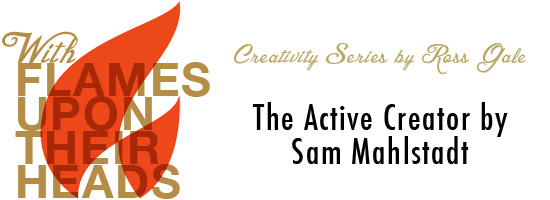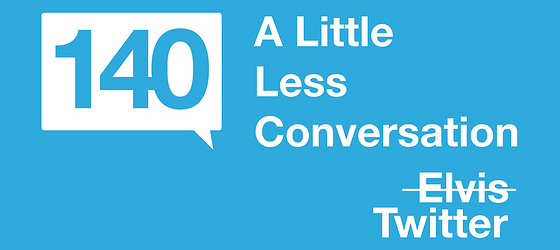
When I was sixteen, my father retired from the military, initiating the last move of my childhood to a small town in Wisconsin. I was once again the new kid, the outsider seeking a space, a community, to call my own. That summer, I found myself drawn to night skies, the warm swirl of darkness and stars freed of suburban glow. Laying in the front yard of our home, surrounded largely by farmland, there was something about vastness that eased my loneliness, my wretched anonymity.
I remember cool grass under my shoulders, the sawing of crickets, and a growing sense of immensity. In that space I contemplated my life and the God whose existence I couldn’t shake. That scene remains for me a picture of longing, an attempt to grapple with, to reconcile, the random awkwardness of my small existence with an expansive and patterned universe.
In my life as a writer, I find myself back in that yard, metaphorically speaking, my face toward the heavens, earth solid beneath my back—my human form caught up in both realms, negotiating these two wonders. For me, this is a picture of the artist of faith in the world.
Catholic theologian and philosopher Gerald Vann says that, by its very nature, humanity has a “duty” toward both the physical and spiritual worlds. He writes, “Because of his psycho-physical nature, man is a mediator. To his ontological status as the midpoint between the world of matter and of spirit there corresponds a mediating function: to incarnate—to give material expression to—spiritual reality and to spiritualize or humanize material reality.” At her best, the faith-filled artist embodies these two dynamics. Human life is a divine invitation to be fully alive in both our physical and spiritual natures and to experience these two natures as fully alive within each other.
What I experienced on those summer nights is the incarnational nature of reality, a world where “the Word became flesh and made his dwelling among us,” where God relentlessly upholds creation as a point of spiritual access and relationship. That this is the case is no small matter for the artist. In my writing, I see the physical and spiritual as inextricably fused. My work, then, as a mediator is a call to recognition, to a wide and penetrating vision, and to live as fully as possible in both spheres, enfolding both within my writing. Great artists rightly recognize and express the spirituality of the material and materiality of the spiritual.
Such a vision invites me to a certain posture toward my writing practice. I traffic in meanings, and incarnational reality signals, if nothing else, that the universe is rife with meaning and significance. I remain open and sensitive to how meaning will impress itself upon my work, not attempting to create or impose it. Meaning is already present because God created both language and the world. It is intuited and received, not conjured.
But there are difficulties in this largely countercultural approach to creating. Writers often are encouraged to adopt a production mentality about their work. Writing is a product obtained by exercising dominance over language and ideas, a doing-unto the text. And, generally, we have been rewarded for the outcomes of this kind of approach. In my younger days, writing was a way to accrue social and academic capital, something to prop up my identity. Even now, I can become overly invested in the results, restless and demanding, too attuned to the winds of social media, and find myself despising the beautiful hiddenness that is a crucial element of the writer’s path. Such a posture is at odds with Vann’s vision of our role as holy mediators. Caught in that place, I sense a deep-down hunger for the solidity of a star-laden summer night.
To immerse myself in this greater vision is part of my calling, and for that I need a more contemplative approach to life and writing. I need to learn how to be quiet and to breathe, to move slowly and pay more attention, remembering that small details matter and learning to truly see them. Flannery O’Connor, an unashamed fan of staring, touches on this more contemplative way of being and working, saying, “The longer you look at one object, the more of the world you will see in it.” Through such careful seeing, she says, “The artist penetrates the concrete world in order to find at its depths the image of its source, the image of ultimate reality.”
We were made for mystery, and that mystery is the expansiveness of the world, the Spirit, the love and meaning that is each moment’s possibility. Writers of faith must trust and lean into other powers to accomplish their art. In such an atmosphere, our work with words becomes a gift, a gratitude.
I’m a long way from that teenager in the Wisconsin countryside, living in St. Paul these days, but looking back I see a beauty in her and her quest to reconcile the worlds around and within. I identify with the goodness she sought, alone on the lawn as the stars pressed close, her implicit recognition of meaning in a spiritually charged world.
As I work and write amid the determined movements of early spring, I know I cannot control the night sky or the first shoots of green that still slumber beneath my feet. Mystery is all. What I can do—and what I believe is my vocation—is to cultivate vision, to be a loving witness as I mediate earth and heaven, holding the tensions of clay and spirit, scatteredness and order, and out of such holding to find words enough to glimpse the glory of what is.
Judith Hougen is an Associate Professor of English at Northwestern College in St. Paul, Minnesota where she has taught writing for twenty years. She has written two books: The Second Thing I Remember (poetry) and Transformed Into Fire (spiritual formation). When not endlessly grading, she works on her own writing, currently a collection of essays on faith and the writing life. She blogs at Coracle Journeys and lurks on Twitter at @JudithHougen.









